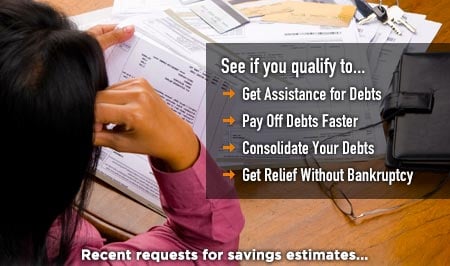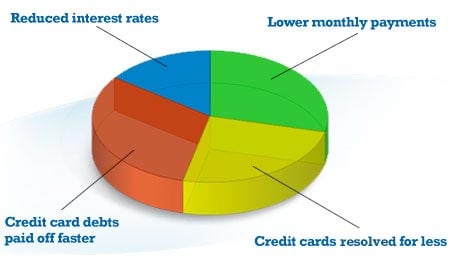
Consolidation - Pennsylvania
During difficult economic times, many residents of Pennsylvania are finding themselves in need of credit card debt consolidation. While "debt consolidation" is a term that's often used as a "catch-all" for the many forms of debt relief available, what it involves is combining credit card and unsecured debts into ONE, easier-to-manage, and more structured payment plan made to a credit counseling agency.
While debt consolidation may be a smart move for many consumers, it is certainly not the only option. As a consumer, you have other debt relief alternatives, including debt settlement and bankruptcy. As a form of debt relief, debt settlement allows you to negotiate with credit card companies at a significantly reduced amount than what you currently owe. These days, both debt consolidation and debt settlement are widely used alternatives to bankruptcy - which can negatively impact your credit rating in a more damaging way and for a longer period of time.
To find out your debt relief options, take a moment to answer a few, simple questions and get a free debt relief estimate, along with a savings quote.
How You Can Benefit From Consolidation
Depending on your debt situation, debt consolidation may help you not only reduce your debts but also give you guidance on managing your finances. Often facilitated by credit counselors, debt consolidation involves combining all your unsecured debts (like credit cards, medical bills, or utilities) into a single, more structured, and more manageable payment plan. Here's a typical scenario:
Following a review by the credit counselor of your obligations and overall ability to pay off your debts, the counselor will - on your behalf - propose to your creditors an offer which could result in a reduction of interest rates, or removal of late fees and penalties. Creditors that agree to extend these favorable repayment terms are then entered into a debt management plan (DMP). The goal is, that you as the consumer can, hopefully, pay down your debts sooner than if you only continued to make the minimum payments at higher interest rates.
What to Expect With Debt Settlement
If you have the type of debt that qualifies for debt settlement, you will typically have the opportunity to negotiate with creditors for a reduced amount of what you originally owe. For many consumers, debt settlement or negotiation may offer an honest and legal way to pay back their debts without declaring bankruptcy.
Keep in mind, however, the potential risks involved: When you enroll in a debt settlement program, your credit score will typically decline because when you settle your debts, it usually involves "falling behind" on your payments in order to set aside funds that can be used to make a settlement offer (or what's also called a lump sum payment). In addition, as you fall behind in making payments, you can also face legal action for, essentially, defaulting on the terms of your credit card agreements.
But, in spite of all these risks, debt settlement has become a popular alternative for many consumers who want to avoid declaring personal bankruptcy.
How to Choose a Debt Relief Company
When deciding on a debt relief company, take the time to do your due diligence and choose one with a positive Better Business Bureau (BBB) rating - this ensures that the company has a good track record of successful settlements or customer service. Another important consideration is to understand how much you can potentially save, how long it will take for you to realize those savings, and the impact to your credit score.
That's why it's a smart move to compare and review all your debt relief options to make sure that you will find the right approach to solving your debt crisis. Find out how debt relief can help you by requesting a free debt relief estimate and savings quote.























